Minister urges monitoring of flood situation along Pan Borneo Highway
Two centuries after braille was invented, blind people in Mali say it has allowed them to fit in
BAMAKO, Mali (AP) — Amadou Ndiaye meticulously ran his fingers across bumps in a piece of paper, making sense of the world he can no longer see.
Two hundred years have passed since the creation of braille, the tactile writing system that has transformed the lives of numerous blind and visually impaired people by providing a path to literacy and independence.
“Braille helped me live my life,” said Ndiaye, a social worker in Mali who lost his eyesight as a child. “Before, people asked themselves the question: Here is someone who can’t see, how will he make it? How will he integrate into society?”
The West African country, with a population of over 20 million people, has long struggled to integrate blind and visually impaired people. According to eye care charity Sightsavers, around 170,000 people in Mali are thought to be blind.
The 47-year-old Ndiaye was fortunate to attend the institute for the blind in Mali, where he learned to write in braille, and told himself: “Really, everything that others do, I can do too.” He later attended university.
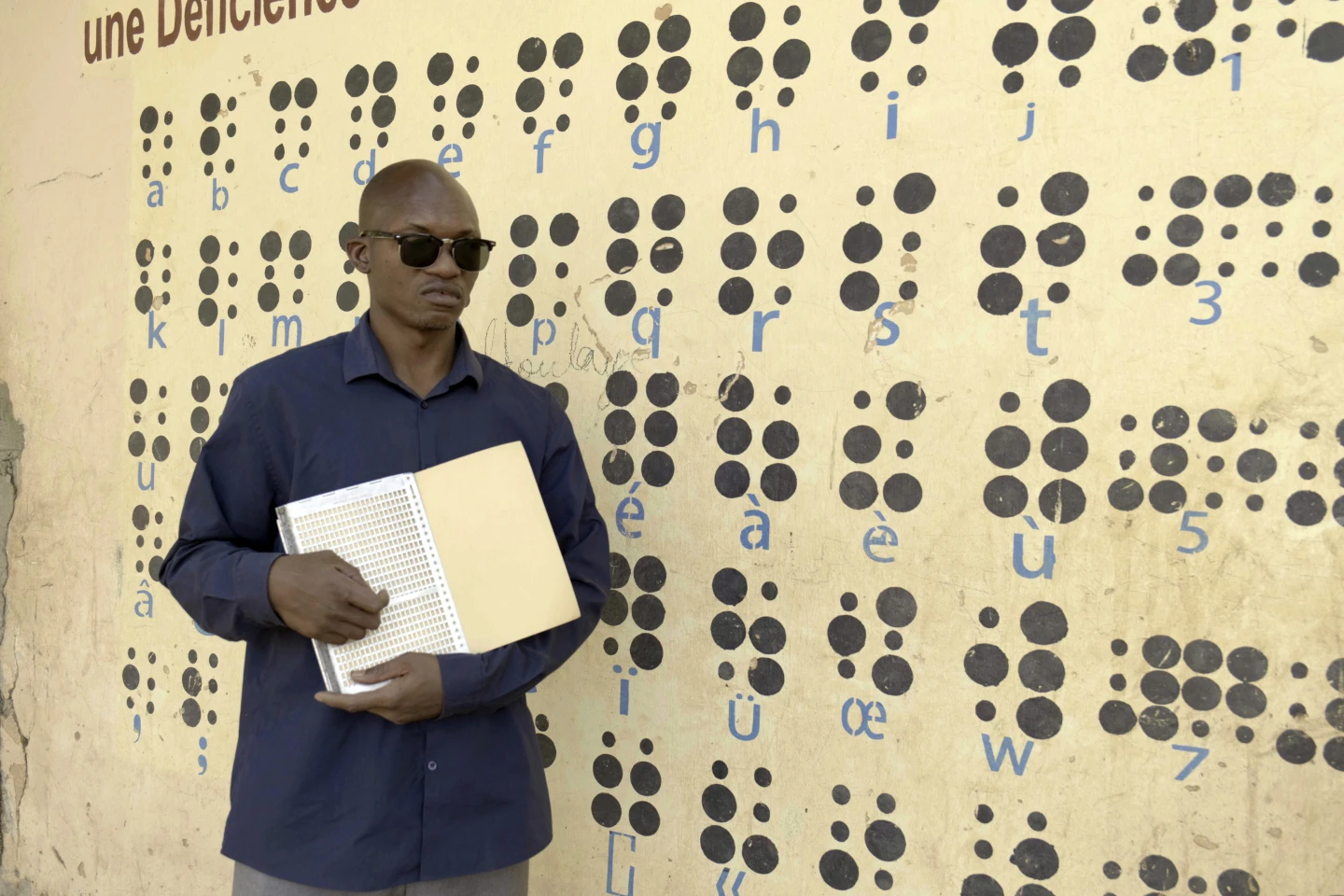
He said braille has allowed him to develop his main passion, playing the guitar, which also emphasises the importance of touch.
“Each pressure on the strings, each movement of the finger on the neck, becomes a living note, loaded with meaning,” Ndiaye said.
The guitar plays a crucial role in Mali’s griot tradition, the cultural practice of storytelling through music. Musicians modified the guitar to emulate the sounds of traditional string instruments like the kora. Local artists such as Ali Farka Touré have fused Malian melodies with elements of the blues, producing a soulful, mesmerising sound that has achieved global recognition.
Iconic Malian musical duo Amadou and Mariam awakened Ndiaye’s passion for the instrument when he was a boy.
“One day, near a photography studio, I heard their music resonating through the window, which pushed me to discover this universe,” he said.
Known as “the blind couple from Mali,” the duo of Amadou Bagayoko, who lost his vision at age 16, and Mariam Doumbia, who became blind at age 5 as a consequence of untreated measles, rose to international fame in the 1990s with their fusion of traditional Malian music, rock, and blues.
The couple met at Mali’s institute for the blind, where Doumbia was studying braille and teaching classes in dance and music.

In these locations, braille has enabled students to overcome educational obstacles such as taking longer to learn how to read and write. According to Ali Moustapha Dicko, a teacher at the institute for the blind in the capital, Bamako, they can then take the same exams as anyone else, which allows them to seek employment.
Dicko is also blind. Using a special typewriter, he can create texts in braille for his students. But he says his students are still at a disadvantage.
“We have a crisis of teaching materials,” Dicko said. He has one reading book in braille for his entire class of dozens of students.
But with the development of new technologies, some blind and partially sighted people hope that educational barriers will continue to fall.
“There is software, there are telephones that speak, so there are many things that are vocal,” said Bagayoko of the musical duo. “This allows us to move forward.”
But Moussa Mbengue, the Senegal-based program officer for inclusive education at Sightsavers, said such advances still don’t make the leap that braille did two centuries ago.
“It cannot replace braille. On the contrary, for me, technology complements braille,” he said.
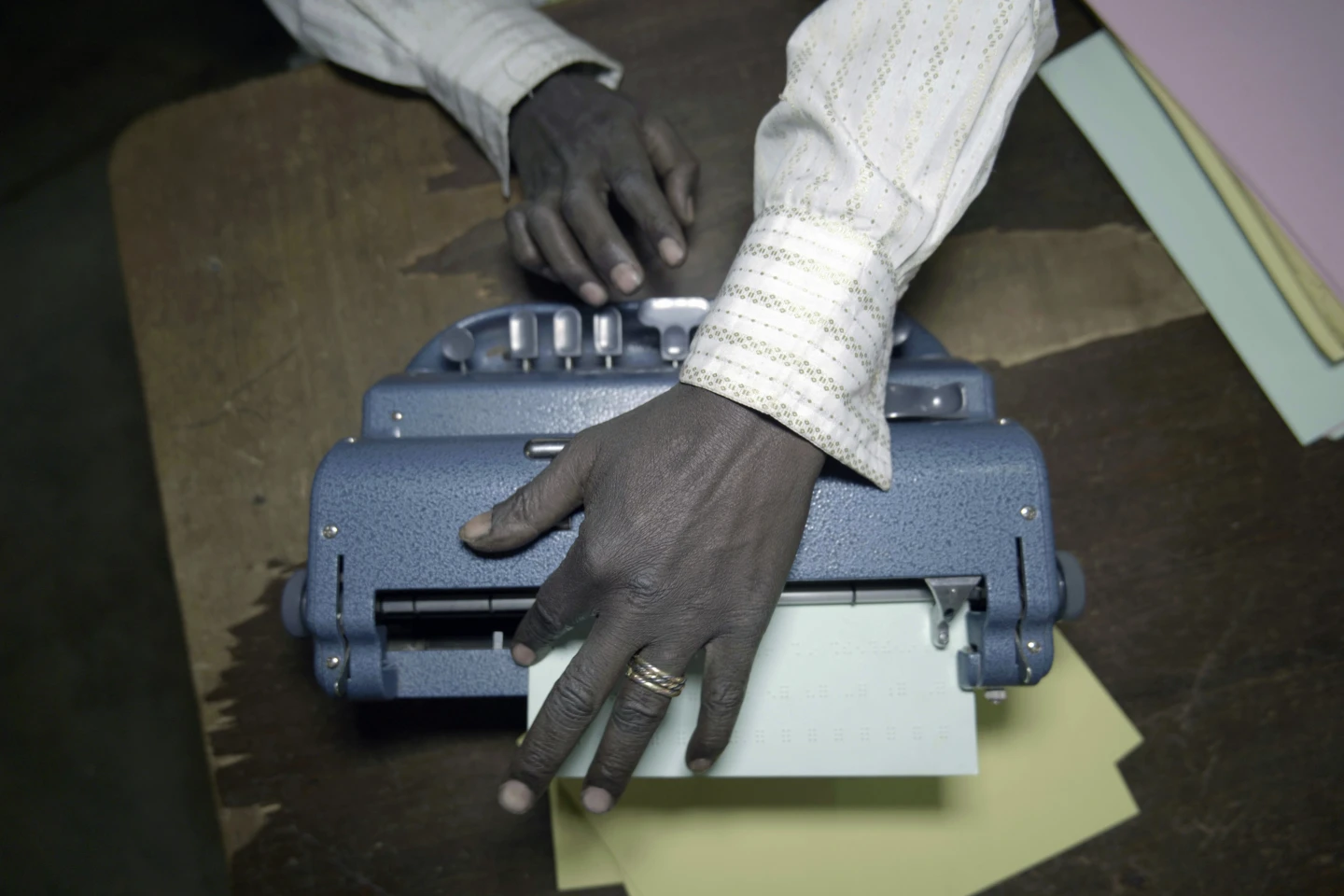
Police bust Macau Scam syndicate
A foreign national suspected of being involved in a Macau Scam syndicate that caused losses exceeding BND240,000 has been arrested by the Cyber Crime Investigation Division (BSJS) of the Criminal Investigation Department (JSJ), Royal Brunei Police Force (RBPF), according to a press release from RBPF. The suspect was apprehended on March 12, marking a significant breakthrough in dismantling the fraudulent network that operated between November 2024 and March 2025.
The syndicate used a modus operandi where victims were contacted via phone by individuals posing as bank officers, claiming that the victims had outstanding credit card debts or owned unauthorised credit cards. The call would then be “transferred” to another syndicate member impersonating a police officer, who would inform the victim that their bank account was allegedly linked to criminal activities. The fraudsters would then demand personal information and instruct the victims to transfer or withdraw money under the guise of security procedures.


Investigations revealed that the syndicate, linked to the arrested suspect, was involved in 38 fraud cases. Authorities also identified 42 local phone numbers used by the syndicate, along with various equipment and residences utilised for their operations. Some of the illicit funds have been successfully traced.
The suspect will be charged under Section 420 of the Penal Code, Chapter 22, for cheating and dishonestly inducing the delivery of property, which carries a maximum penalty of seven years’ imprisonment and a fine.
The RBPF said that the BSJS continues to investigate the case to identify other victims who have yet to report their losses and to track down additional syndicate members. The police have urged the public to remain vigilant against scams and avoid renting out or registering bank accounts or SIM cards on behalf of unknown individuals, as those found guilty could face legal action under various offences, including conspiracy, fraud, and money laundering.
To protect against Macau Scam fraud, the public is advised to remain calm and verify any suspicious calls by directly contacting banks or the police through official channels. It is also crucial to avoid transferring money or handing over cash to unknown individuals. The RBPF remains committed to combating such scams and encourages the public to spread awareness among family and friends to prevent further victims. – James Kon
Seeking the blessings of Lailatul Qadar in the final nights of Ramadhan
Muslims are urged to maximise their acts of worship and devotion in the last ten nights of Ramadhan in search of Lailatul Qadar, a night greater than a thousand months, as emphasised in today’s Friday sermon.
The sermon highlighted that Lailatul Qadar is a divine gift from Allah the Almighty, granted exclusively to the ummah of Prophet Muhammad (pbuh). It serves as an opportunity for believers to seek forgiveness, increase their good deeds, and attain immeasurable rewards.
Citing a hadith from Abu Hurairah (RA), the sermon mentioned that Ramadhan is a blessed month where Allah the Almighty opens the gates of heaven, closes the gates of hell, and chains the devils. Within it lies Lailatul Qadar, a night filled with blessings and mercy, surpassing the rewards of a thousand months.

The sermon also explained that the exact date of Lailatul Qadar remains unknown, as wisdom behind this secrecy encourages Muslims to continuously seek it through worship and righteous deeds throughout the final ten nights of Ramadhan. However, Prophet Muhammad (pbuh) advised seeking Lailatul Qadar on the odd nights of the last ten nights, as narrated by Abu Sa’id Al-Khudri (RA).
Signs of Lailatul Qadar include a peaceful and serene atmosphere, where the night is neither too hot nor too cold, and at dawn, the sun rises softly without harsh rays. Muslims are encouraged to increase their supplications, including the well-known dua taught by Prophet Muhammad (pbuh) to Aishah (RA).
The sermon concluded with a reminder to emulate the practices of Prophet Muhammad (pbuh) during the last ten nights, such as engaging in i’tikaf (spiritual retreat), reciting Al-Quran, making zikir (remembrance of Allah the Almighty), seeking forgiveness, giving charity, and encouraging family members to worship together. – Hakim Hayat
Keep your child’s teeth healthy!
ANN/THE STAR – A child’s smile is a precious feature that reflects their happiness and well-being.
As parents, safeguarding that smile involves more than just regular toothbrushing.
Understanding the prevalent dental issues that affect children, including tooth decay and gingivitis, being aware of how to prevent and treat these problems, is essential for maintaining your child’s dental health.
Common dental issues
Tooth decay, also known as dental caries or cavities, happens when oral bacteria produce acids that erode the enamel due to prolonged exposure to excessive sugary foods and drinks.
Gingivitis, the early stage of gum disease, involves inflammation and bleeding of the gums caused by plaque build-up.
Both conditions are primarily caused by poor oral hygiene.
If tooth decay and gingivitis are not addressed promptly, they can result in serious problems. Left untreated, decayed teeth can cause discomfort and make it difficult to chew and eat.
Untreated tooth decay can also lead to infections, abscesses and tooth extraction.
Gingivitis, if ignored, can progress to periodontitis, a more severe type of gum disease that may harm the soft tissue and bone supporting the teeth, potentially resulting in tooth loss.
Treatment and prevention
Dental visits are daunting for many children, especially those with anxiety. A painful or bad experience in the past may cause them to be nervous.
Parents play a crucial role in shaping their child’s attitude towards dental visits.
Children often pick up on how adults feel, so staying calm and talking positively about going to the dentist can help create a reassuring environment.
For parents looking for special dental care for their children, paediatric dentists are an excellent choice.
These experts focus on treating kids and ensuring they receive appropriate treatment, both physically and emotionally.
Paediatric dentists understand the unique challenges and fears that children might have and create a comforting and kid-friendly environment for their young patients.
For more anxious patients, options such as sedation and general anaesthesia can make treatments more comfortable and stress-free.
These methods ensure that necessary dental care is administered without causing undue distress to the child.
Prevention, however, is the best strategy for maintaining your child’s oral health.

Here are some important tips for inculcating good oral habits:
Establish a routine
Parents should brush their child’s teeth as soon as they erupt, using only a smear of fluoridated toothpaste. Once your child turns three, use a pea-sized amount of toothpaste. Teach your child to brush their teeth twice daily for at least two minutes, ensuring that all surfaces are cleaned. Encourage them to spit out the toothpaste after brushing, rather than rinsing with water, to keep the fluoride’s effectiveness on their teeth.
Fluoride use
Ensure your child uses toothpaste containing at least 1,000 ppm (parts per million) fluoride, as the correct fluoride concentration strengthens enamel and helps prevent decay.
Healthy diet
Limit the amount and frequency of high sugary snacks and drinks. Encourage a balanced diet rich in fruits, vegetables and dairy products that provide essential nutrients for healthy teeth and gums.
Regular dental visits
Schedule your child’s first dental visit by their first birthday to familiarise them with the dental environment and make them comfortable. Make sure to schedule dental check-ups every six months.
Regular visits allow the dentist to monitor your child’s oral health, perform professional cleaning and detect problems early.
Promoting healthy dental practices from a young age can help guarantee that your child’s teeth stay strong and well, enabling them to smile confidently for a lifetime.
Early intervention and consistent preventive care are essential for maintaining healthy teeth and gums throughout their life.
For tailored advice and care, always consult with your dentist to address your child’s specific dental needs.
Flights cancelled after Indonesia volcano eruption
JAKARTA (AFP) – At least seven international flights from Indonesia’s resort island Bali have been cancelled, an airport official said Friday, after a volcano in the archipelago nation’s east erupted, shooting dark ash eight kilometres into the sky.
Mount Lewotobi Laki-Laki, a 1,703-metre (5,587-foot) twin-peaked volcano on the tourist island of Flores, erupted for 11 minutes and nine seconds late Thursday, authorities said, raising the volcano’s alert status to the highest level.
As of 9:45 am (0145 GMT) Friday, “seven international flights had been cancelled, six of them are Jetstar flights bound to Australia and one Air Asia flight to Kuala Lumpur,” Bali’s Ngurah Rai International Airport spokesman, Andadina Dyah, said in a statement.
Several other flights — both domestic and international, including to Thailand, Singapore and Australia — have been delayed, it said.
The local airport in Maumere, on Flores, the closest to the volcano, has not been affected by the ash, according to the transportation ministry.
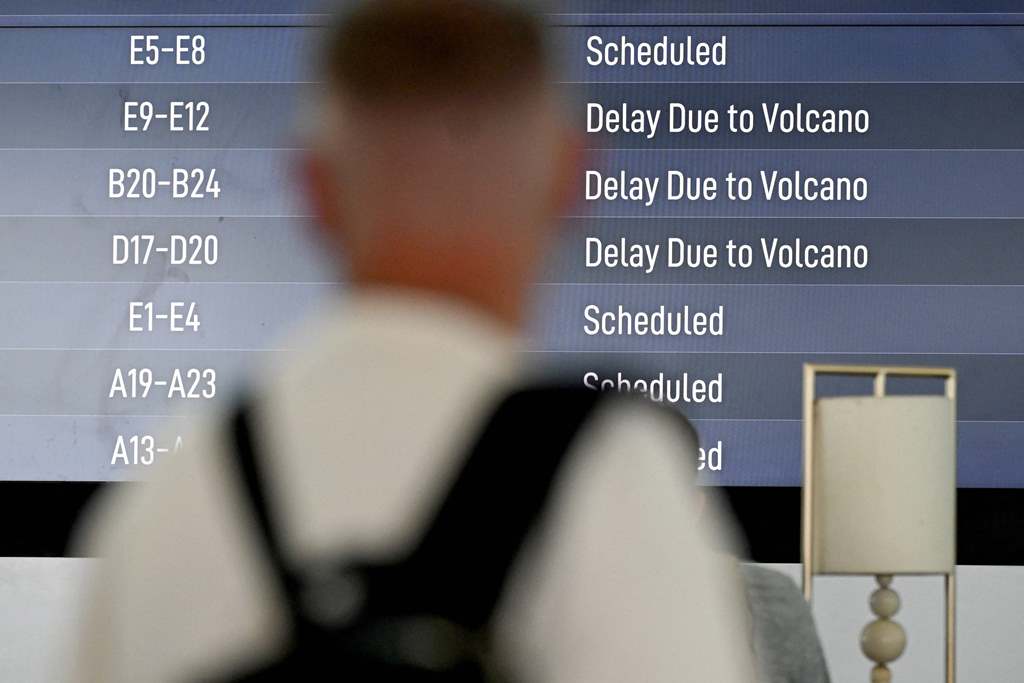
“The ash column was observed grey to black with thick intensity,” Indonesia’s volcanology agency said in a statement about the eruption, which began at around 11:00 pm on Thursday.
There were no reports of damages to nearby villages, but the agency warned residents of the potential for volcanic mudflow due to heavy rainfall.
The long eruption prompted the country’s geological agency to raise the volcano’s alert level to the highest of the four-tiered system.
Authorities imposed an exclusion zone between seven and eight kilometres (four to five miles) around the volcano, the agency added.
In November, Mount Lewotobi Laki-Laki erupted multiple times, killing nine people, cancelling scores of international flights to the tourist island of Bali and forcing thousands to evacuate.
Laki-Laki, which means “man” in Indonesian, is twinned with a calmer volcano named after the Indonesian word for “woman”.
Indonesia, a vast archipelago nation, experiences frequent seismic and volcanic activity due to its position on the Pacific “Ring of Fire.”
A death occurs every two hours on the roads of Malaysia
PETALING JAYA (ANN/THE STAR) – Someone loses their life in a Malaysian road accident every 1 hour and 56 minutes, according to official statistics from March 14, 2024, to March 18 this year.
Even more alarming, a road accident occurs approximately every 50 seconds.
The Star’s analysis reveals these sobering figures as the country approaches the Hari Raya holiday season, when millions travel to their hometowns.
The Cabinet committee on traffic congestion and road safety began releasing daily accident statistics last March to raise awareness about road safety.
Road accidents surged during festival periods
Statistics indicate that accidents tend to rise sharply in the days prior to major festivals. There is then a decline during the festival days, followed by another spike once the festivities end as traffic returns to normal levels.
Last year, the top three days with the highest number of accidents all fell within a one-week period before Hari Raya Aidilfitri, namely on April 5 (2,185 cases), April 4 (2,160 cases), and April 6 (2,156 cases).
After a brief dip during the festivities, the number of accidents spiked again just days later, with 2,146 accidents reported on April 15, four days after Hari Raya Aidilfitri.
Day with the highest number of road accidents
Monday emerged as the day of the week with the highest average number of accidents at 1,803, followed closely by Friday (1,802) and Tuesday (1,796).
Meanwhile, Sunday saw the lowest average at 1,451 accidents.
However, when it comes to road fatalities, Sunday and Saturday were the deadliest days, each averaging 15 deaths per day.

Monday, Thursday, and Friday followed with an average of 14 deaths daily, while Tuesday recorded the lowest at 12 deaths per day.
Across the entire year, Malaysia recorded an average of 1,729 traffic accidents per day, with 14 daily fatalities.
The overall traffic death rate stood at 0.8 deaths for every 100 accidents.
Road safety measures make a difference
Despite the trend, major police initiatives aimed at enhancing road safety have resulted in a decrease in accidents and fatalities during major festivities.
For example, the Ops Selamat 23 operation, held over five days from Jan 28 to Feb 2 this year in conjunction with Chinese New Year, managed to reduce accident cases by 10 per cent, with 7,882 cases compared to 8,784 during the same period last year.
In addition, Transport Minister Anthony Loke on March 10 announced that goods vehicles will be prohibited from operating on the roads for four days in conjunction with Hari Raya Aidilfitri.
The ban will be enforced on March 29 and 30, as well as April 5 and 6.
The purpose of the ban is to alleviate congestion and minimise the likelihood of road accidents resulting from the mix of commercial vehicles and private cars.
Malaysia ranks second in Asean for road fatalities
Among South-East Asian countries, Malaysia had the second-highest road fatality rate among Asean nations in 2021, according to the Global Burden of Disease 2024 report.
The country recorded 23.7 road deaths per 100,000 people, trailing Thailand, which topped the list at 29.7. Vietnam ranked third with a rate of 21.7.
Despite these figures, Asean countries have seen a steady decline in road fatality rates over the past four decades.
In Malaysia, the rate dropped from 31.3 per 100,000 people in 1980 to 23.7 in 2021.
Al-Quran as a life guide highlighted in RBPF Religious Talk
The Nuzul Al-Quran is more than just a historical event—it serves as a guide for life, offering wisdom, solutions to challenges, and blessings for those who embrace its teachings. This was among the key messages shared during a religious talk organised by the Royal Brunei Police Force (RBPF) in conjunction with Nuzul Al-Quran at its headquarters surau in Jalan Gadong on Thursday.
Delivered by Director of the Core Knowledge Centre at Kolej Universiti Perguruan Ugama Seri Begawan (KUPUSB) Haji Mohd Syahiran bin Haji Mohd Sofian, the talk emphasised that reading and practicing the teachings of the Al-Quran not only brings great rewards but can also provide sustenance in unexpected ways, even in times of hardship.
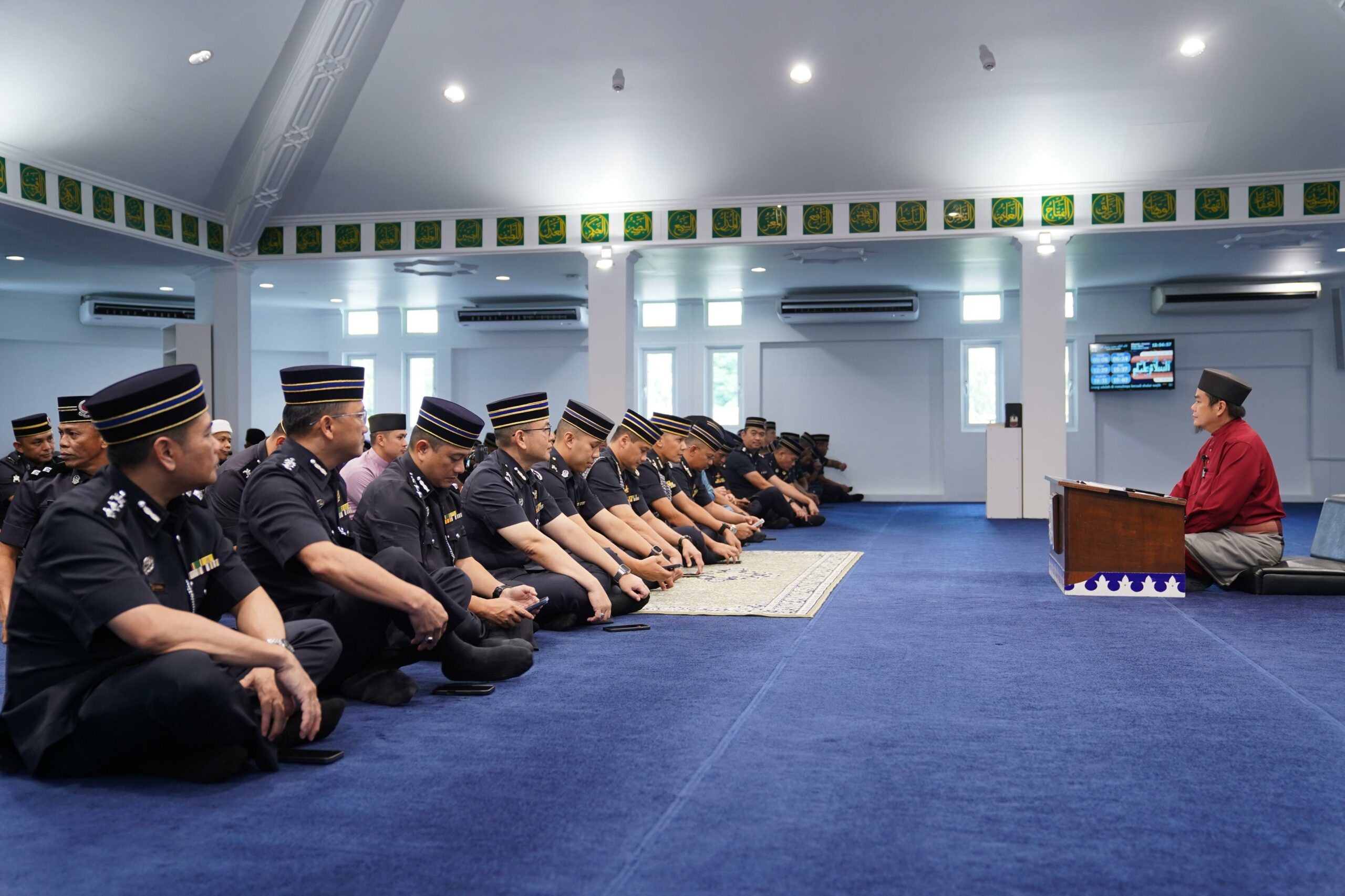
Acting Commissioner of Police DCP Dato Seri Pahlawan Sulaiman bin Alidin attended as the guest of honour. Also present were Acting Deputy Commissioner of Police Yang Amat Mulia SAC Pengiran Anak Haji Mohammad Saifullah bin Pengiran Indera Setia Diraja Sahibul Karib Pengiran Anak Haji Idris, as well as directors, deputy directors, senior officers, and RBPF personnel.
The event began with a mass Zohor prayer and concluded with a presentation of a souvenir to the speaker, followed by a Doa Selamat led by Imam of the Gadong Police Surau APO Staff Sergeant 6472 Mohd Yusri bin Haji Abu Bakar. – James Kon


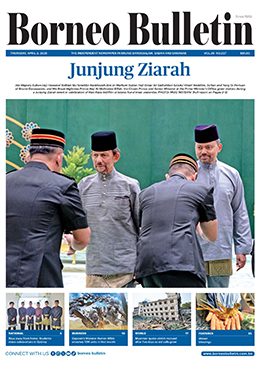
Son says he ‘let my team-mates down’ in South Korea qualifying draw
GOYANG, South Korea (AFP) – Son Heung-min said he “let my team-mates down” after South Korea stumbled in World Cup qualifying with a 1-1 home draw against Oman.
The Tottenham striker failed to get on the scoresheet on Thursday as the Koreans fluffed a chance to take a big step towards next summer’s tournament in the United States, Canada and Mexico.
Coach Hong Myung-bo branded the draw “our worst performance” in the third Asian qualifying round, having conceded the equaliser with 10 minutes left.
South Korea’s lead at the top of Group B was cut to three points ahead of both Jordan and Iraq, with only the top two teams qualifying automatically.
“I feel like I let my team-mates down today,” captain Son told reporters after the game in Goyang, near Seoul.
“But this is not the only match we’re going to play together.
“We have been able to create some positive situations to come this far. We should try to learn from this match and take the next step.”
South Korea are home to Jordan on Tuesday in a crucial encounter.
They also travel to face Iraq before Group B concludes in June.
“People might think this qualification round is easy but we have to work so hard for every match,” said Son, who has seen less playing time at Spurs this season after struggles with form and fitness.
“A match like this can teach us a lesson. We have to take whatever positives we can from this.”
South Korea opened the scoring late in the first half through Wolves’ Hwang Hee-chan but Oman grabbed a point late on in a rare attack.
Hong ripped into his team’s performance.
“We gave away the ball too easily and I got the feeling that we were not leading the match even though we were up by a goal,” the coach said.
“The opponent did not have a ton of chances but they still scored.”